I am Atmaram, a poor, old, uneducated farmer from a distant village in Vidharba, visiting a city for the first time in my life. Unfortunately, my 24-year-old son, Baburao, is suffering from recurrent episodes of sudden breathlessness due to his asthma, and we have come to the well-known government-aided Mumbai General Hospital for his treatment. This is my story.
No sooner had the ambulance stopped in front of a casualty of the well-known government-aided Mumbai General Hospital, we rushed our son to the emergency medical services (EMS). My wife still sat in the ambulance, weeping. The EMS was full of patients; two doctors were attending to around 20 patients stuffed on 12 beds, to be precise, and I stood numbly watching my son gasp for breath. “Doctor Saheb, emergency aahe,” I shouted. “Kaka, awaz mat karo. Yahan sab patients emergency ke hee hain,” he replied bluntly. My heart sank. Waiting for those 3 minutes until he finally came to check on Baburao seemed like an eternity to me.
He came, checked my son’s chest with his stethoscope, and panicked and shouted, “Staff, intubation trolley ready, Karo.” Baburao was shifted on a bed, curtains drawn. “Baba, central line, ECG, madam,” he shouted again. My heart beat fast. I couldn’t understand what had changed so drastically in those 5 minutes. Everyone, including the sister and the other doctor, rushed to check on my son. Time stood still for me.
After 10 unforgettable minutes, I could finally see my son: rubber tubing down his throat (endotracheal tube), a thin tube through his neck (neckline), and blood all over his bed sheet. “Saans aur dhadkan chalu hai,” said the doctor. I felt relieved. Bad thoughts had corrupted my mind all this time. My wife didn’t have the courage to see my son in that condition. She almost fainted.
Baburao was then put on some computerised machine (a ventilator), dripping as we waited for him to stabilise. Blood samples were taken, X-ray and ultrasonography (USG) chest forms were filled out, and they were handed over to us. We were happy to see him wave to us from a distance. Baburao was better now and had to finally be shifted to the ward. I struggled to find the registration counter for the admission papers and the blood sample laboratory too. My old, weak legs don’t have so much stamina to run around at this age. Nevertheless, I was determined that everything would be fine and that I would take my son back to the village soon.
Baburao was then put on a trolley this time, with an intern ready to accompany us, but there was no servant to help us to the X-ray, USG, and finally to the ward. Our crucial 15 minutes were wasted waiting for the servant to arrive. The X-ray didn’t take much time, but we were surprised to find the USG door locked. “Kaka, 5 minutes ruko,” the intern said and left in a hurry. He came back with a call book, this time sending the mama with that book to the Resident doctor’s quarters. A call was sent to the radiologists. The call was accepted. Mama had returned a long time ago, but there was no sign of the doctors. The intern went again to check on them. They finally arrived, yawning, 45 minutes after the call was first sent. I was angry deep in my heart.
All the work was done, and we proceeded towards the ward. Another shock awaited us. The ward was full too, and there were no beds available. Baburao was then put on a mattress on the floor. No doctors were around; no treatment or medicines were started. The staff nurse said, “Ab tumhare doctor subah aayenge, notes dalenge, and tabhi kuch hoga”. By this time, my wife and I had calmed down too. Baburao was calm now, no longer breathless.
The following 4 days began daily with the senior doctor’s (Head of Unit or lecturer) round in the early morning, the registrar’s or houseman’s round in the evening, the usual blood tests, and the sputum tests. Those four days were like going through hell. Every morning, blood samples were taken and sent for expensive tests in private laboratories. The IV line had to be changed twice since it got blocked due to a clot. Some inexperienced students would do that. It’s so difficult to see your son being pricked so many times. He couldn’t bear the pain. I couldn’t help but ask myself why he was used as a guinea pig for training them. I was also made to run around a lot for reports and medicines. Why can’t they ask for everything at once? The ward doctors would sometimes hand me blood samples of other patients who had no relatives around the clock. Extra IVs, bivalves, and medicines used to be ordered. One was put in my son’s hands; the rest would go in their stock. I still remained quiet. My money was draining, but my son’s improving condition asked me to keep mum. I also used to feel harassed by students who would come every morning in 2s and 3s, ask us the same questions every day for their case study, and make us run around from one room to the other for their case presentations. I was so angry that my son had to go through so much. Also, it feels odd to be stared at by 20 students at once, with Baburao being used as a specimen. Yet I was always composed.
On the 5th day, Baburao developed a high fever since morning. For us, he was in safe hands. But around 11.30 p.m., he suddenly became breathless again. I panicked, and so did the staff nurse. No doctor was present in the ward at that time. I ran to the ward next to ours. A young doctor lay asleep in the clinic room there. I asked him to rush quickly. “Tumhare doctor dusre hain, who mera patient nahin hai? Kaka jao ward mein, doctor aate hii honge. Sone do abhi,” he said. I was shocked! A young, educated doctor, my son’s age, was talking to me with no respect at all, least bothered about my son’s life. I didn’t understand what was happening. Quietly, I walked to our ward, and standing at the door, I was shocked to see what was happening.
I could see ‘our doctor’ trying to give chest compressions to Baburao. My wife was crying uncontrollably while standing next to the mattress. For some reason, I feared the worst. After three minutes, he checked his pulse and breathing. “Kaka, aapka beta nahin raha“, he said in a sad tone. I couldn’t believe it. I was shocked, numb, and senseless. There was no word for what I felt in my heart. There was no one to console me except my wife, who herself was in tears. We had lost our only son, our only hope for the future.
Baburao’s body lay in the ward for the next 2 hours. While our doctor filled out the death certificate (DC), the mama wrapped my son’s body. It all looked like a routine for them—no feelings, no remorse—nothing had changed for them. The sad face that had informed me of my son’s death was now smiling as he spoke to ‘the other Unit’s’ doctor, the staff nurse. DC read: – Systemic infection in a known case of bronchial asthma.
After this life-changing, bitter experience, I have lost all regard for the heartless doctors. I didn’t even find a single genuinely caring doctor there who deserved our respect. We miss Baburao a lot. We break into tears thinking about him. I often wonder, staring at the open sky from my kaccha house and finding Babaurao among those stars, if doctors really deserve to be treated next to God. Ask me I will never.



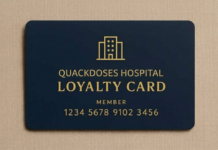
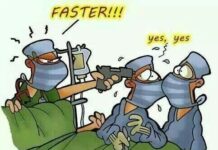
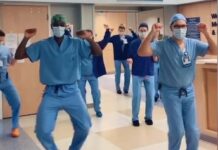

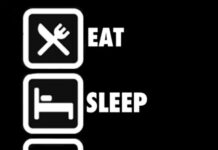

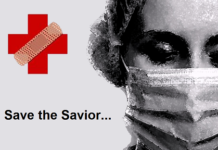
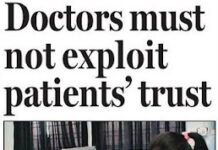
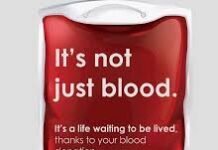


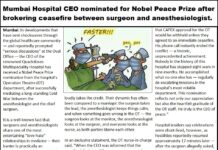

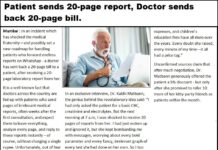

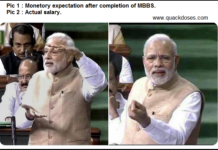







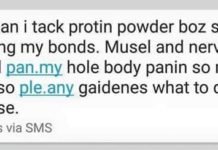



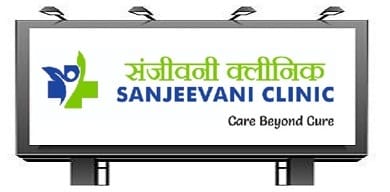
One of the posts which are very close to my heart…would feel proud, if it could take even a handful of people in thinking mode…
ekh bhai….u ve seen residents goin on widout sleep for 2-3 days on the go.they eat dabba delivered at 9 at nite at 3 am in early morn…some hv to give less thn mins to clear their intestines.
sadest part of whole scenario is 1 who is sup…posed to impart health has to live most inhuman life himself.
i empathize wid this person if this is a real incident…bt i feel for doctors more.
n if they r unaffected by death thn they r professionals..sumwhre deep evn they feel bad.bt rnt they helpless?
if sum1is to b blamed thn u kno who it is…i dnt thnk ne doctor is heartless.
hw much cn a single hungry sleepless person do?
if sum1 asks me ths question, i ll take him to tour of general hospitals.
ths is scenario arising out of skewed doc-patient ratio n corporate negligence.
no doc is to b blamed.
orry buddy…but cant share your view mohit..as rightly said by vrush,its the skewed doctor patient ratio…no doctor is heartless…i have been a intern sometime back myself..n i kn how frustrating it is…aur jaha tak resident ki bat hai, every one gives 200% at work..yeah its sad, that this guy lost his son…but m sure every1 did what that person can do the best… at times u r just helpless..
is this one of the sad parts of getting admitted to a government hospital…where one of the things we boast of is that we get to see interesting cases and patients…
as an intern I would have to run and run for infinite hours…but at last… be cursed by some patients or their relatives…???
wel..I still hope to start my internship at a positive note..
that I shall help 1 if offend 9..
Liked !